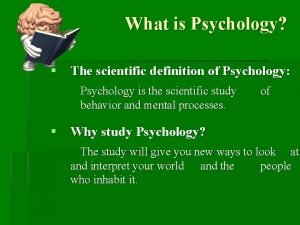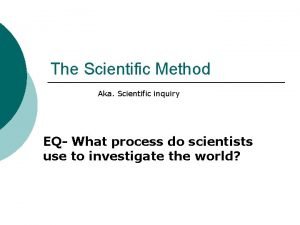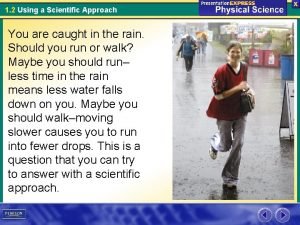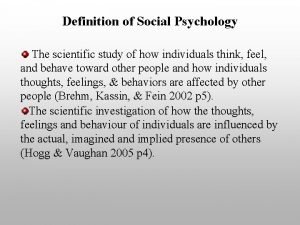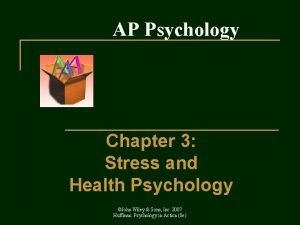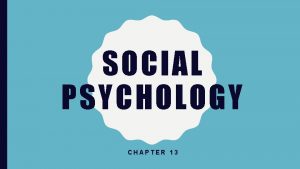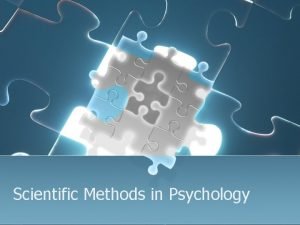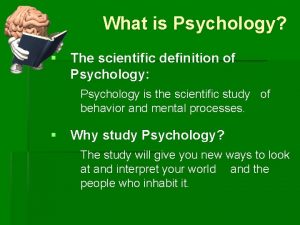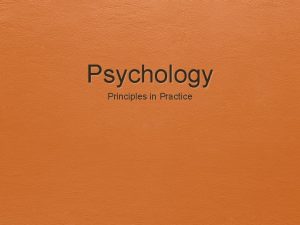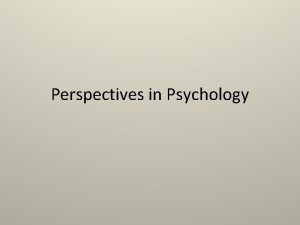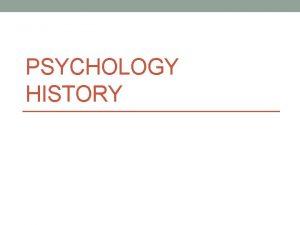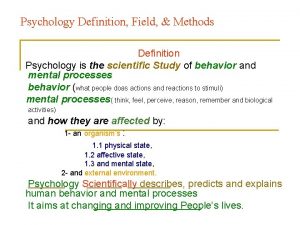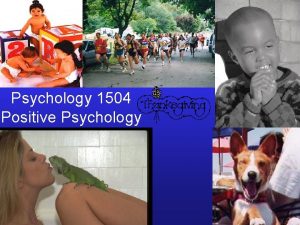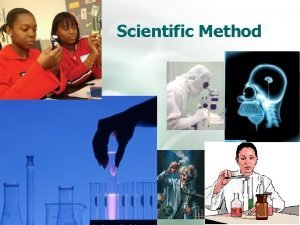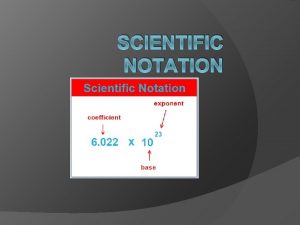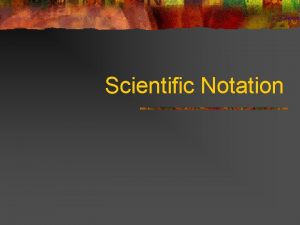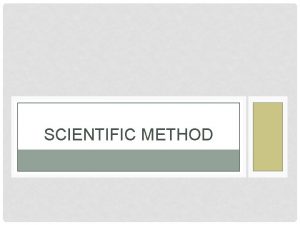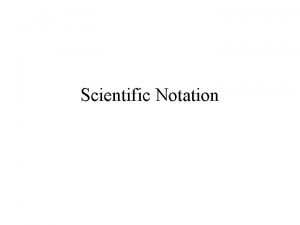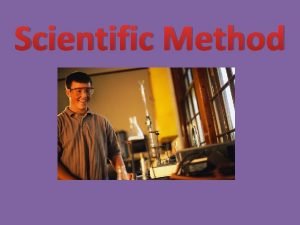What is Psychology Definition of Psychology The scientific
















- Slides: 16

What is Psychology?

Definition of Psychology • The scientific study of behavioral and mental processes.

Why Study Psychology? • Psychology provides tools to help us gain insight into our behavior as well as our relationships with others.

What Psychology IS NOT… • Psychology IS NOT a pseudoscience • Greek for “false science” • Examples: Horoscopes, Astrology, Phrenology *

Fields of Psychology • A psychologist is someone who is trained to observe and influence behavior in people. • A psychiatrist is a medical doctor that can prescribe medicine for psychological illnesses.

Work in Psychology Elementary/ Secondary Schools 4. 2% Independent Practice 33. 1% Business, Hospitals, Counseling, Government or Clinics, etc. Consulting 22. 3% 12. 1% Universities & Colleges 27. 2% 6

Psychological vs. Physiological • Psychological needs are things like love, comfort, security • Physiological needs are things like food, water, sleep

Maslow’s Hierarchy of Needs

Four Goals of Psychology 1. DESCRIPTION: The kid is having a meltdown in the candy aisle 2. EXPLANATION: He wants the yummy candy 3. PREDICTION: He will get the candy 4. INFLUENCE: Strategically -placed candy bars

1. ) Description • Observable behavior • What do you see? • Does not offer the “why” actions are happening

2. ) Explanation • Psychology is empirical • Empirical: information is obtained through observation and experimentation, NOT “common sense, ” intuition, or guessing.

2. ) Explanation • Psychology is a behavioral science. • Psychologists rely on the scientific method to obtain their data.

2. ) Explanation General research Ex: Research on drug effects on the brain Basic Science Psychology Putting general research to use for a specific purpose Ex: Using research on how drugs effect the brain to come up with a new antidepressant to help people suffering from depression Applied Science

3. ) Prediction • By accumulating knowledge, we are able to predict what people or animals will or think in certain situations and predict future behaviors

3. ) Prediction • A theory is a proposed explanation. In psychology, we will be studying different theories. • A hypothesis is an educated guess. Demonstrates relationship between two variables.

4. ) Influence • Scientists seek to influence behavior in helpful ways. • Chains like Wal-Mart have done these scientific observations and place candy as you check out because when your kid is screaming, sometimes it is easier to just buy the candy bar.
 Psychological perspective
Psychological perspective Scientific inquiry vs scientific method
Scientific inquiry vs scientific method How is a scientific law different from a scientific theory?
How is a scientific law different from a scientific theory? Positive psychology ap psychology definition
Positive psychology ap psychology definition Social psychology is the scientific study of:
Social psychology is the scientific study of: Health psychology definition ap psychology
Health psychology definition ap psychology Social psychology definition
Social psychology definition Hát kết hợp bộ gõ cơ thể
Hát kết hợp bộ gõ cơ thể Ng-html
Ng-html Bổ thể
Bổ thể Tỉ lệ cơ thể trẻ em
Tỉ lệ cơ thể trẻ em Gấu đi như thế nào
Gấu đi như thế nào Tư thế worm breton
Tư thế worm breton Hát lên người ơi
Hát lên người ơi Môn thể thao bắt đầu bằng từ chạy
Môn thể thao bắt đầu bằng từ chạy Thế nào là hệ số cao nhất
Thế nào là hệ số cao nhất Các châu lục và đại dương trên thế giới
Các châu lục và đại dương trên thế giới
